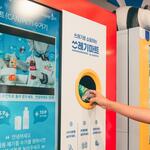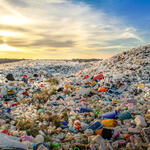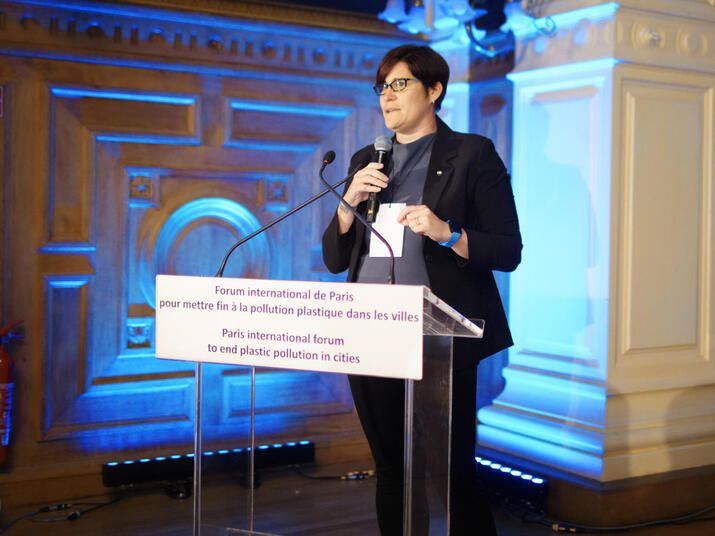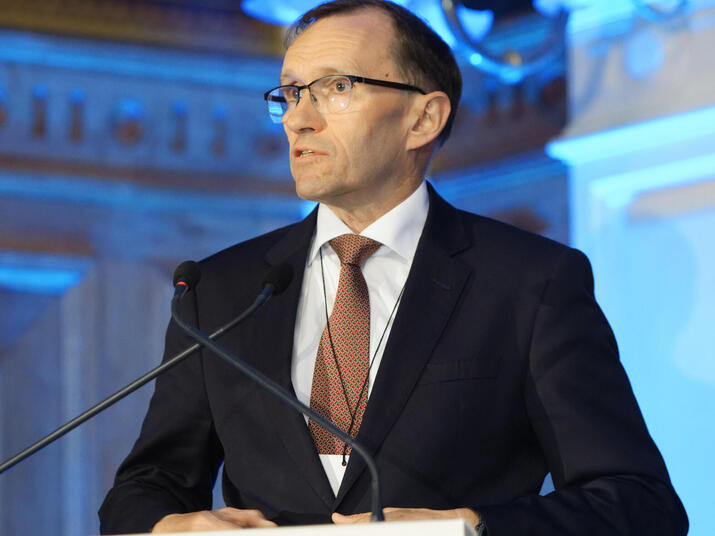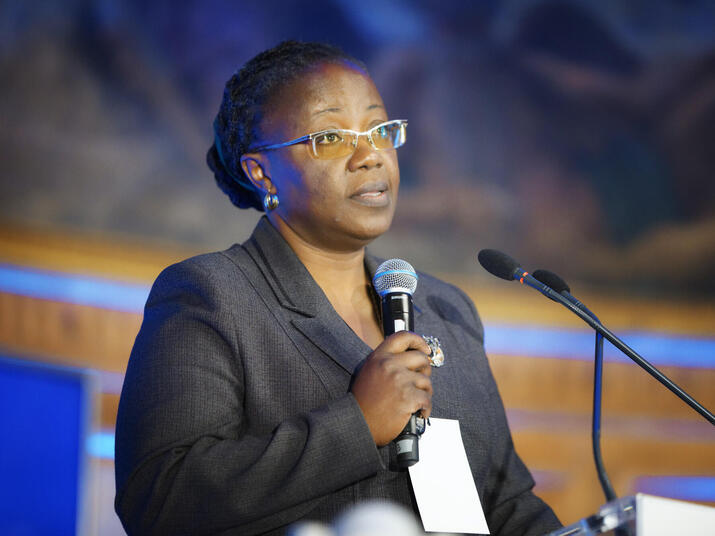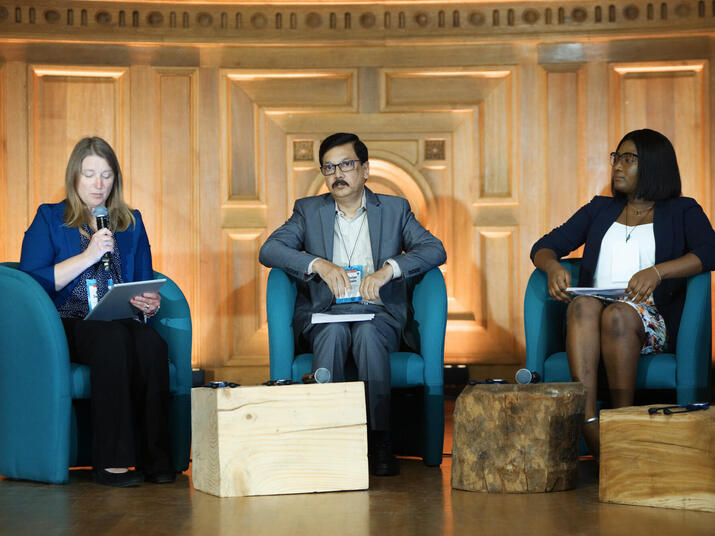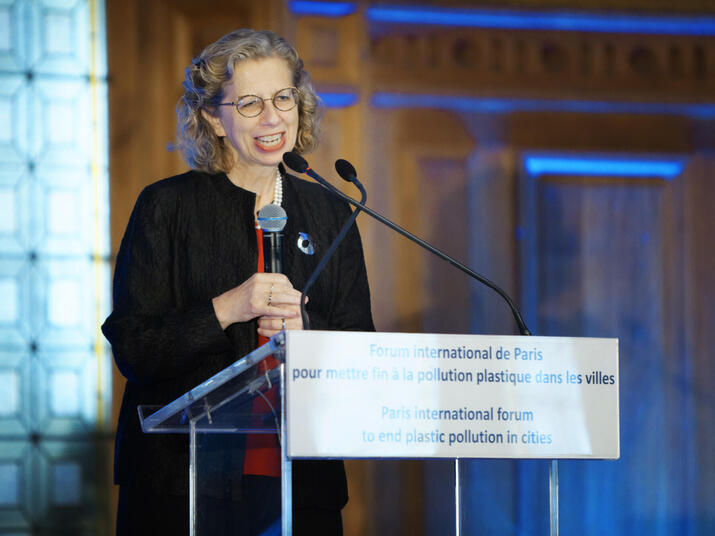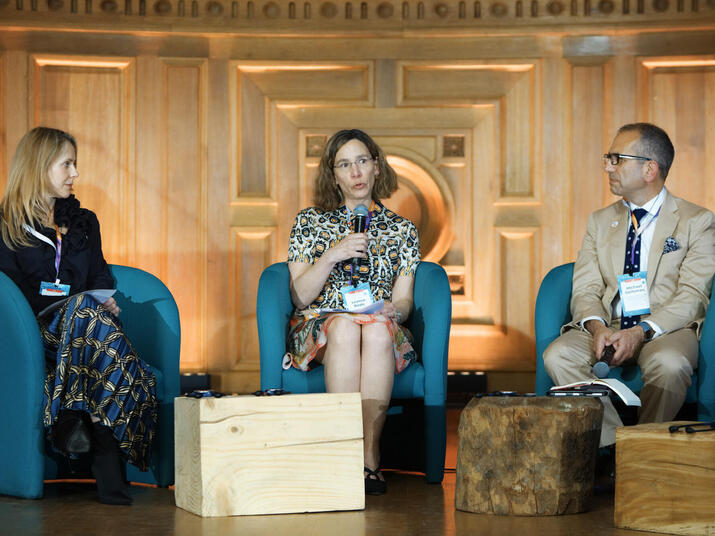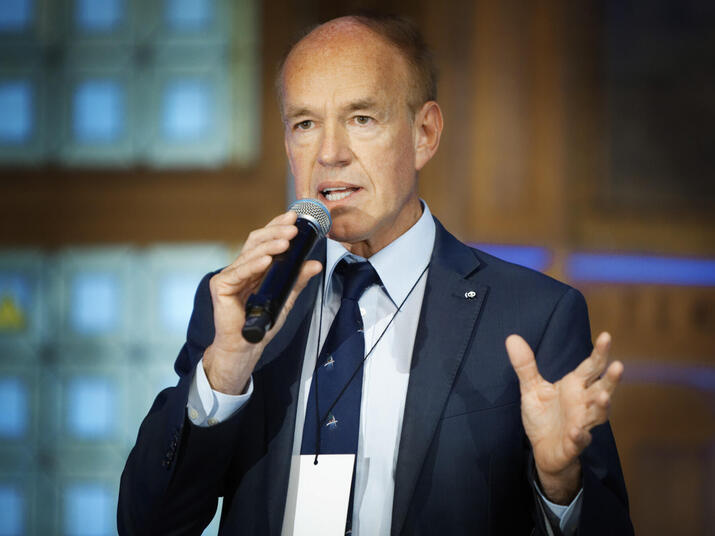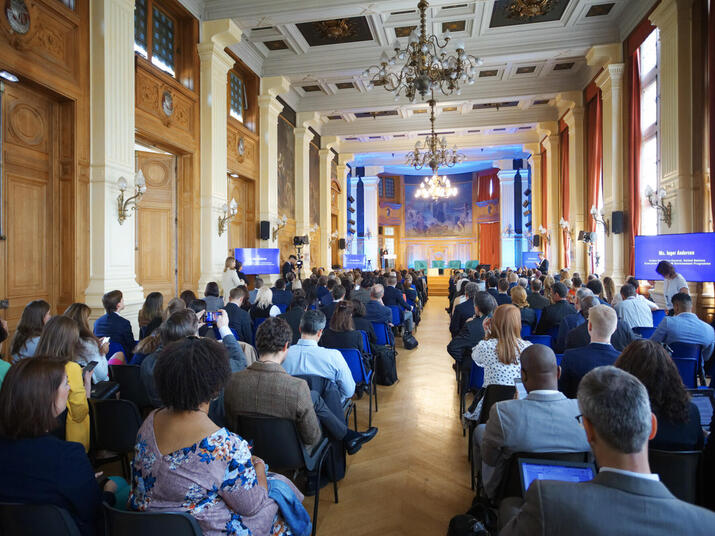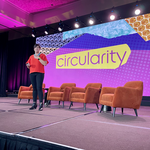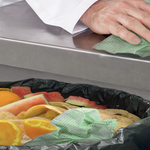- Date: 14 June 2023
Plastic is everywhere in our daily lives—it keeps our food fresh, it makes our packages more efficient to ship, and it’s in the personal protection equipment (PPE) that helped save lives during the global pandemic. However, despite the reliance our world has on plastic, one thing is for certain—the waste it creates is taking over our planet. It pollutes our air, our soil, and is even threatening our water, with an estimated 11 million metric tons of plastic entering our ocean every year.
By examining how we source, design, dispose, and reuse plastic materials we can create a circular system that values truly necessary products and packaging, reimagines how plastic can be reused, and incentivizes recycling programs.
And in South Korea, this is exactly what WWF and The Coca-Cola Company are working to do.
- Date: 02 June 2023
- Author: By Erin Simon, Vice President for Plastic Waste & Business, World Wildlife Fund
Rushing from events to meetings and back again, I almost forgot to look around and take in the beauty of Paris. The historic landmarks, the stunning architecture, and the river that winds through the city are normally showstoppers, but this week my mind was squarely focused on one thing – plastic pollution – something that is deteriorating the beauty and health of our cities, rivers and coastal communities around the world.
This past week, world leaders gathered in Paris with one mission – to make progress toward securing a UN Global Treaty to End Plastic Pollution. The calls from civil society, business, scientific and youth voices all rallying for an ambitious and effective treaty could be heard loud and clear. From briefing events to art installations, the ‘city of light’ illuminated with passion for solving the global plastic crisis, as pressure was applied on UN Member States to get the job done at INC-2. But did they?
Frustration set in early, as a small number of governments caused a nearly two-day delay in negotiations by challenging provisionally agreed to – but not yet adopted – rules of procedure. This slowdown, while an anticipated tactic, threatened the process and reduced the amount of time negotiators could spend discussing the substantive aspects of the treaty. By mid-week a temporary resolution was in place to move the talks forward.
As the discussions advanced beyond procedural matters, a clear picture emerged that tangible progress could be made during INC-2. By the close of the negotiations, a majority of governments were aligned with WWF’s vision for what a successful treaty should look like and were calling for comprehensive binding rules across the full lifecycle of plastic and for global bans on high-risk and unnecessary plastic materials, like the single-use products that far too often end up in our environment with devastating effects. Importantly, a mandate was also issued for governments to deliver a “zero draft” – essentially a working outline of the treaty, ahead of INC-3 – which is set to take place in Nairobi, Kenya in November.
Looking ahead to the next round of negotiations, the global community and players across the plastics value chain must continue to come together and call for increased ambition if we’re going to end up with a treaty that will truly help solve this crisis.
The treaty process must move us toward a circular economy for plastic, and businesses are uniquely positioned to make this transition easier for countries by helping to deliver the solutions needed to get there. Leading companies from the Business Coalition for a Global Plastics Treaty understand this, and have been visible and vocal throughout the negotiations, using their outsized voice for good. The coalition supports a treaty that includes regulations on reduction, circulation and prevention alongside remediation, all key factors in a holistic approach to ending plastic pollution.
The voice of the public is equally important. Accounting for 5% of the world’s population, as a nation, the US generates three times more waste than the global average. Our country is part of the problem, but we must also be part of the solution. With 77% of Americans agreeing that too many products are made of plastic and that the waste it creates is a problem, our leaders have an obligation to secure a legally binding treaty that will eliminate production of harmful plastics, deliver a circular approach for the plastic that remains, and ensure that no plastic ends up in nature.
From start to finish, INC-2 was a rollercoaster with twists and turns and highs and lows but in the end, the progress needed was achieved to move the treaty forward. As I reflect on the week and as we look ahead to INC-3 and beyond, it will be useful for me, but also for governments, businesses and individuals to stop and think about the beauty they will miss in this world if these negotiations fail. This process holds the key to shaping a future free of plastic pollution. There is momentum, there will be more challenges, but together, we can turn off the tap of plastic waste and deliver a treaty that ensures a healthier future for people and the planet.
- Date: 25 May 2023
- Author: Jess Zeuner, Program Specialist, Plastic & Material Science, WWF
In the minds of many consumers, the products we buy 'begin’ when they hit our store shelves.
Of course, we know they came from somewhere – but not often do we stop and consider the full life cycle of a product, the origin of the materials that make it up, or the environmental footprint that began long ago, the moment those materials were sourced.
As we strive for a future economy no longer dependent on fossil fuel, we have the opportunity to reduce the carbon intensity of materials we use every day. From packaging, to textiles, to the automotive industry – the benefits of replacing fossil carbon with renewable carbon derived from plants could extend to a wide range of industrial and consumer goods applications. The potential climate benefits of the bioeconomy are immense – however, transitioning to plant-based production relies heavily on agricultural and forestry industries, both of which can have serious social and environmental impacts.
Careful decision-making and responsible sourcing are essential for the production and management of biobased materials, especially considering the increasingly important issues of food security, land competition, water, climate change, biodiversity loss, and safe labor practices.
- Date: 16 May 2023
- Author: Alix Grabowski, Director, Plastic and Material Science, WWF
Plastic made from plants (also known as bioplastic or bio-based plastic) holds the potential to be more sustainable and better for the planet. But not all plant-based plastic is created equal. The type of feedstock (biological material used to make the plastic) matters, as does where and how it is produced and harvested. If these factors are not carefully considered, there may be unintended negative consequences for nature and people.
To ensure plant-based plastic is designed to build environmental, social, and economic resilience across ecosystems and communities, WWF convened the Bioplastic Feedstock Alliance (BFA). BFA brings a science-based perspective to the sourcing of plant-based plastics and their role in circular systems, ensuring that any shift to plant-based inputs brings lasting value to nature and people.
- Date: 07 December 2022
The future of the plastic waste crisis will be determined by the actions the world takes today to address it. Some of the world’s largest brands—and users of single-use plastic—have gotten started, by setting time-bound commitments to reduce their plastic waste footprints. If met, many of these targets can help prevent upwards of 50M metric tons of plastic waste by 2030*.
It's crucial, for both people and the planet, that these companies succeed. WWF launched ReSource: Plastic in 2019 with the purpose of closing the “how” gap for success, equipping companies with the latest data and insights they need to take actions that maximize the potential for impact. Through an innovative measurement framework, ReSource helps companies translate their ambitious commitments into meaningful, measurable progress on plastic waste reduction.
- Date: 17 November 2022
- Author: Erin Simon
Take a moment and look around. How many single-use plastic items can you spot?
No matter where you are, single-use plastic isn’t far behind – whether it’s a shopping bag, food packaging or even a bottle of medication. And more likely than not, many of these items will end up contributing to the 11 million tons of plastic pollution that enter our oceans every year.
Consumption of single-use plastic has exploded in recent years, creating a global crisis that impacts nature, people, and the climate. To reduce this stress, we need to start by reducing how many resources we take from the planet– and just as importantly, start valuing the resources we already have in circulation. That’s where reuse systems come in.
- Date: 15 November 2022
On America Recycles Day 2020, the United States announced a target recycling rate of 50% by 2030. It’s an impressive goal, and there’s a lot of work to be done to get there. Just two years into that goal, not enough progress has been made. With about 22,000 municipalities managing their own recycling systems, we need national ambition and consistent action to change the way we recycle.
That’s why OneSource Coalition is putting Extended Producer Responsibility—also known as EPR—at the forefront of today's America Recycles Day 2022.
- Date: 13 September 2022
WWF’s multi-stakeholder forum, Bioplastic Feedstock Alliance (BFA), works to help advance the responsible development of plant-based, or “biobased” plastics. In this interview series, we hear how members of the BFA are practically applying responsibly sourced biobased plastic as a strategy for circularity.
The LEGO Group’s Maria Rosenberger Petersen, Senior Environmental Sustainability Specialist, shares how and why her company is incorporating biobased plastic into their materials strategy.
- Date: 19 May 2022
- Author: Erin Simon, Head of Plastic Waste and Business
Even in times of great political divide and international conflict, moments of global resolution are possible. Just a few months ago on March 2 at the UN General Assembly (UNEA 5.2), 175 world leaders courageously found common ground on a plan to tackle one of the planet's most pressing issues: plastic waste.
In the historic moment marked by the knock of a gavel and a roar of applause, UN member states unanimously voted in favor of establishing a legally binding agreement to end plastic pollution – and one that will be developed under an accelerated timeline to be finalized as soon as 2024.
This first major step to put a treaty in motion took more than seven years. Because while there are many ongoing large-scale efforts to mitigate plastic waste, the reality is that no international issue can be effectively addressed without a global framework to support it.
- Date: 12 May 2022
WWF’s multi-stakeholder forum, Bioplastic Feedstock Alliance (BFA), works to help advance the responsible development of plant-based, or “biobased” plastics.
In this new interview series, we’ll hear how members of the BFA are practically applying responsibly sourced biobased plastic as a strategy for circularity.
Berry Global’s Rob Flores, Vice President Sustainability, shares how his company is leveraging biobased content in its unique role as a packaging solutions provider.
